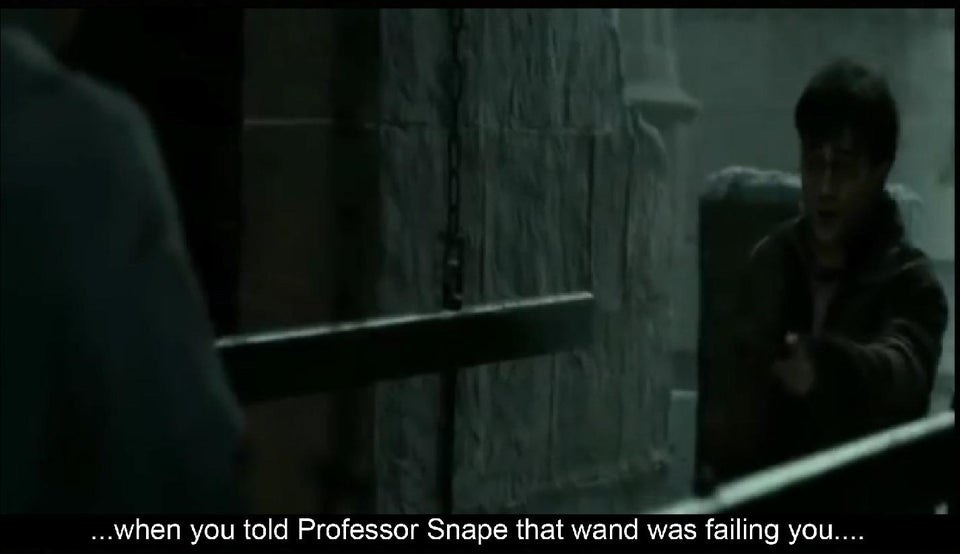Snape is one of the most polarizing characters in the Harry Potter Universe.
Snape is all grey. You can't make him a saint: he was vindictive & bullying. You can't make him a devil: he died to save the wizarding world
Rightfully so. In case you're living under a rock, Snape was the double agent working for Dumbledore and Voldemort, whose loyalties ultimately lay with the former. However, he was horribly bitter and mean to Harry and his friends.
Personally, I can't excuse Book Snape's actions, but Movie Snape wasn't quite as bad. Alan Rickman did an amazing job of playing the controversial character, as shown in these 18 movie details below.
1. Let's start at the very beginning. When Snape and Harry first meet eyes, Harry's scar hurts. But it's actually because Quirrel's head is turned at that exact moment, and Lord Voldemort is living on the back of Quirrel's head.
2. In fact, Snape actually notices that Harry's scar hurts and turns to look at Quirrell. He later confronts Quirrell because he's suspicious of him working with Voldemort.
3. Snape's first line to his class is actually symbolic of his love for Lily.

4. Quirrell suggests it was Hermione's fire that distracted him from killing Harry during the Quidditch match. But if you look closely, you can see that Snape's push is the reason Quirrell falls down.
5. Snape is actually the one to teach Harry the spell Expelliarmus, which becomes his signature.
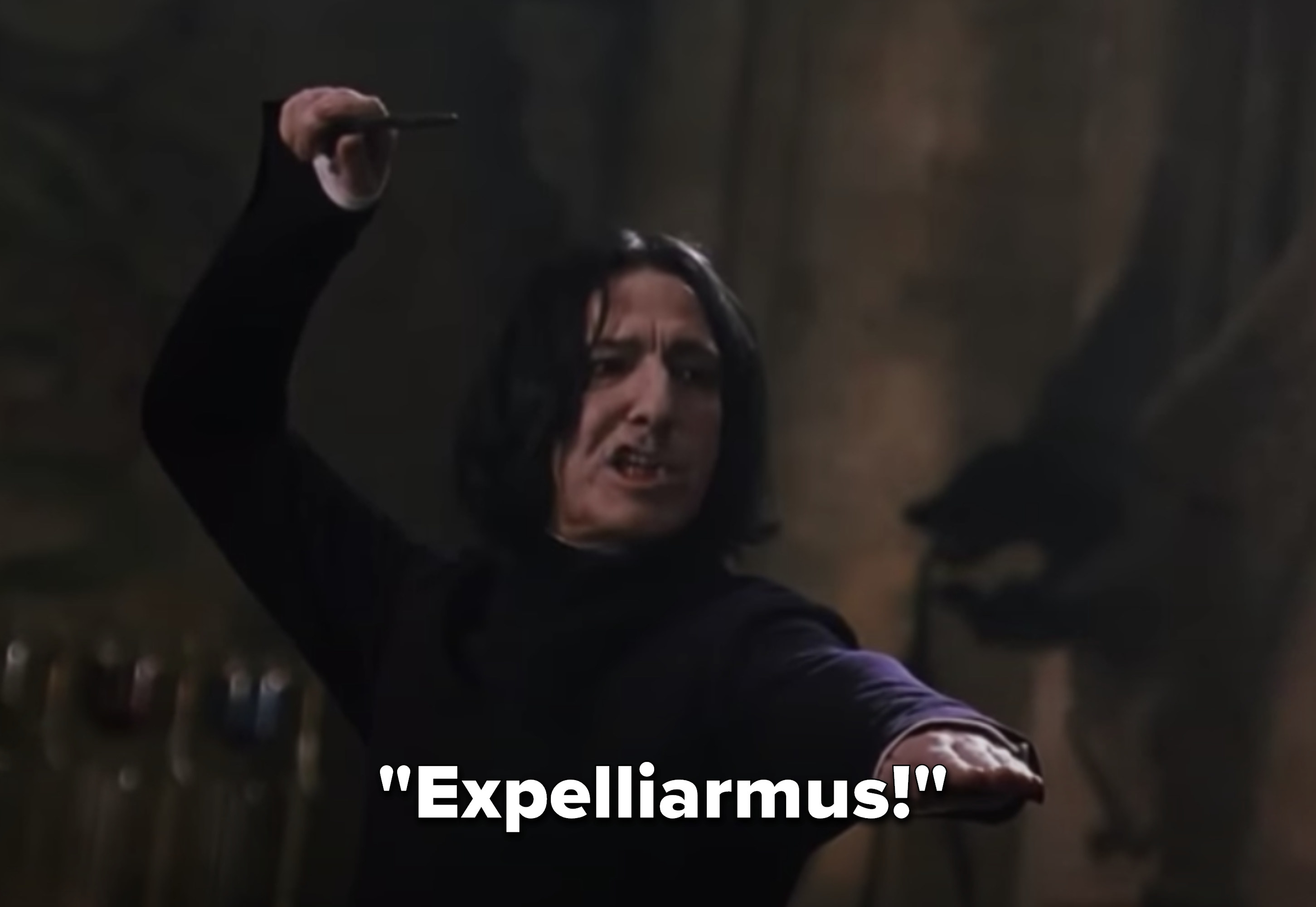
6. After McGonagall reveals that Ginny Weasley has been taken to the Chamber of Secrets, Snape looks genuinely concerned.
7. In Prisoner of Azkaban, when Sirius Black breaks into the castle, Snape is actually the one to suggest to Dumbledore that they should warn Harry about Sirius.
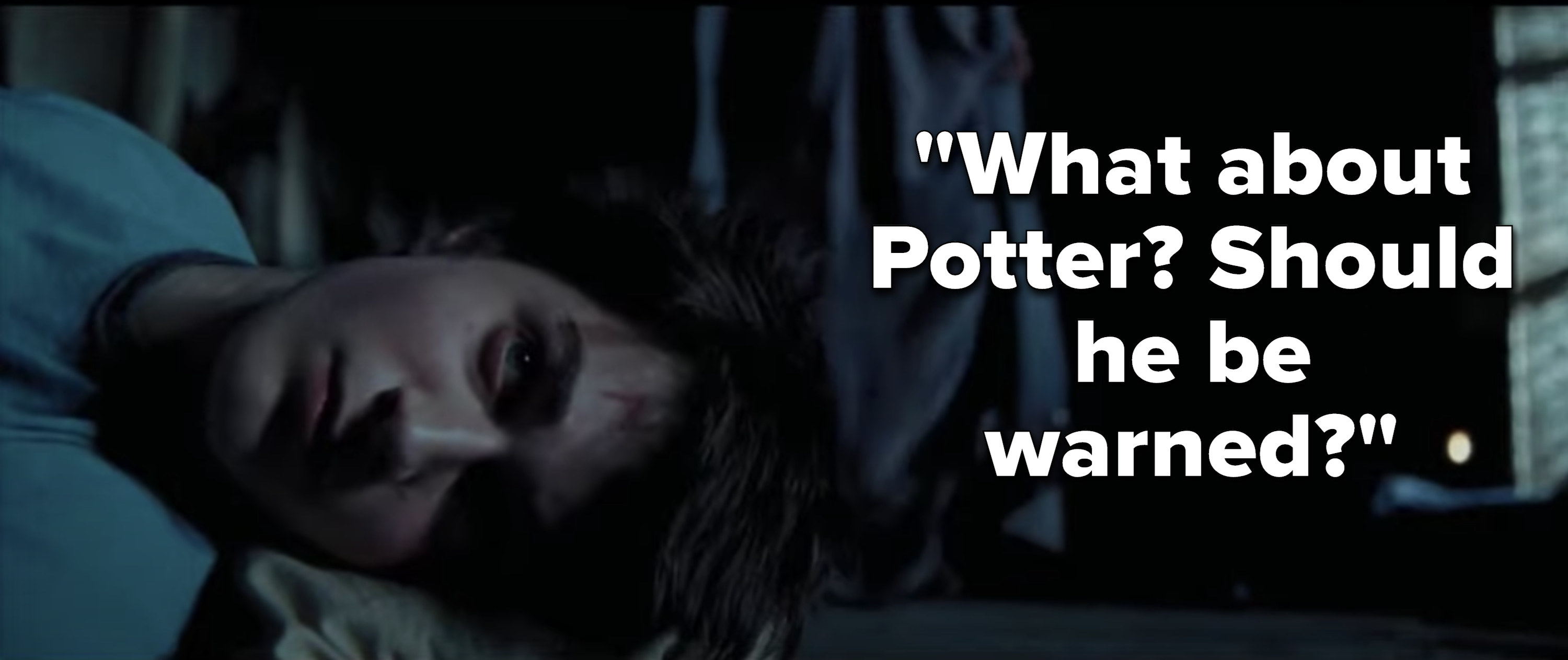
8. In Prisoner of Azkaban, Snape nods at Harry, Ron, and Hermione to leave. Harry betrays his trust by knocking him out, using the same spell his father used on Snape in the bullying flashback in Half-Blood Prince.
9. Even after Harry knocks Snape out (still can't believe he wasn't expelled for that), when Lupin turns into a wolf, Snape tries to protect the three.
10. In Order of the Phoenix, Snape teaches Harry Occlumency and says a bunch of mean (and likely true) stuff about his dad. It quickly becomes clear he's provoking Harry in order to prove a point about how he's vulnerable to Voldemort.
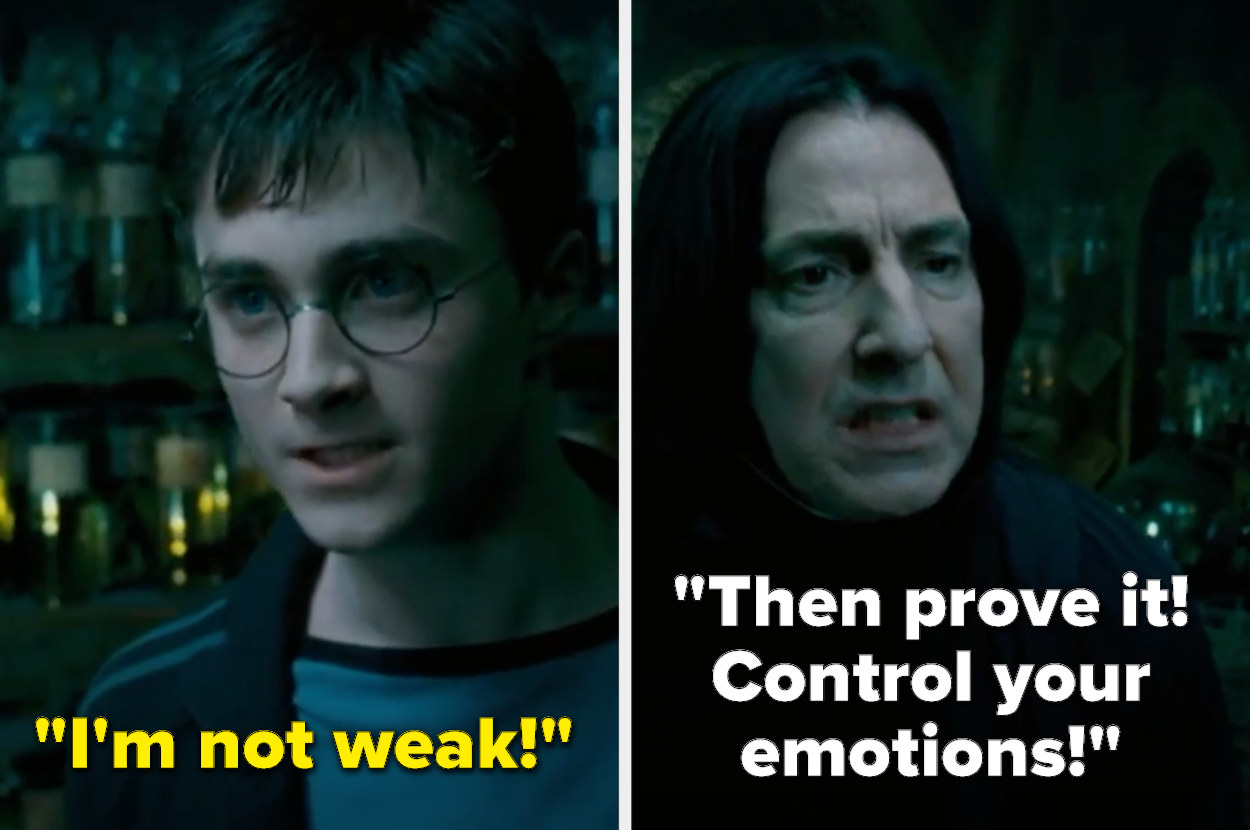
11. When Snape kills Dumbledore, you can see the hesitation very clearly on his face. He only obliges when Dumbledores says "please," and even then his voice shakes.
12. After Harry screams at Snape for killing Dumbledore and Bellatrix knocks him to the ground, Snape makes sure the others go on without him and that Harry is safe before he leaves.
13. And when Harry again angrily yells at him for killing Dumbledore, he just stands there looking guilty.
14. When McGonagall steps in front of Harry to duel Snape, he lowers his wand.
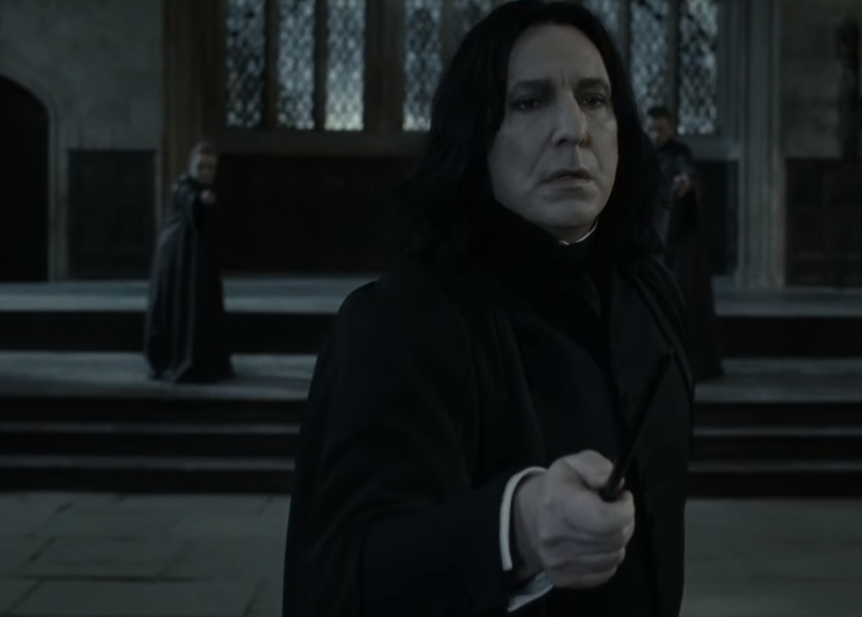
15. When they actually do duel, Snape does not cast any offensive spells. In fact, he blocks her spell and sends it at the Carrows, knocking them out.
16. In Snape's death scene, you can see a Gryffindor scarf hanging in the background. If you've read the books, this may be a subtle nod to Dumbledore's line to Snape, "sometimes I think we sort too soon."
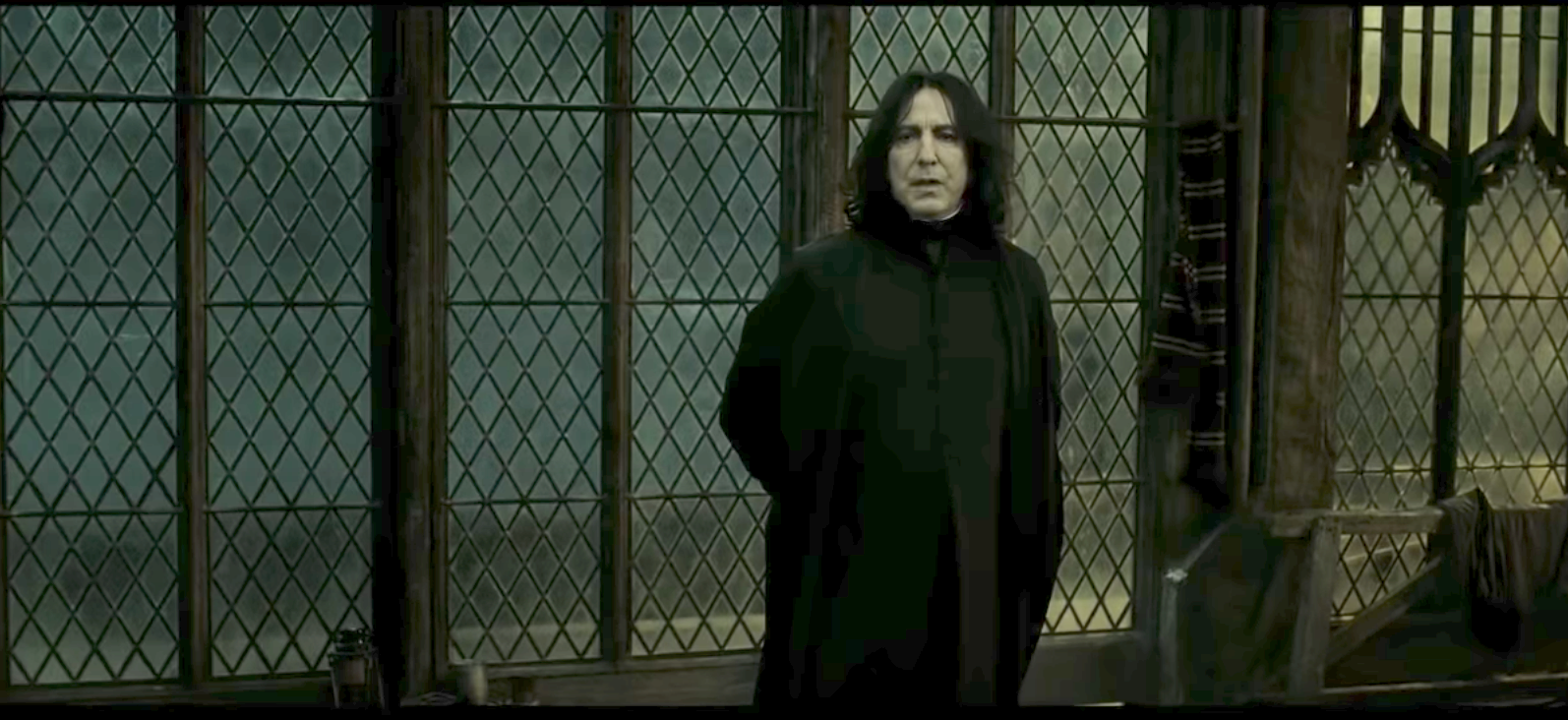
17. This is a REALLY small detail, but in Snape's death scene, when Voldemort asks Snape who the Elder Wand's loyalty lies with, Snape responds "With you. Obviously." You can see him sort of adjust position and gesture towards where Harry is hiding. This could be him trying to indicate to Harry that he was actually the rightful owner of the Elder Wand.
18. Finally, after Snape dies, Harry finally begins to refer to him as "Professor Snape" instead of just "Snape," showing that he respects him now that he knows the truth.
